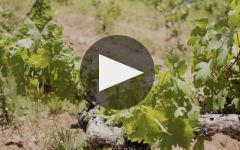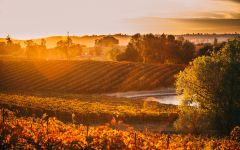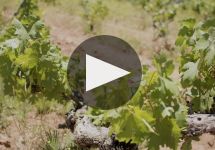Terra d'Oro Barbera 2021
-
Wine
Enthusiast



Product Details
Your Rating
Somm Note
Winemaker Notes
The Terra d’Oro Barbera is lush and inviting, with aromas of leather, anise, red cherry compote, fresh sage, raspberries, cinnamon and slate. A juicy, round and layered midpalate is complemented by a touch of cream and red fruit with a long, velvety finish.
With its natural acidity, the Barbera goes well with richer meats and game.
Professional Ratings
-
Wine Enthusiast
Dried red currant, cranberry-pomegranate, blood orange, dried florals on the nose. The palate is fresh strawberry, Bing cherry, red currants, zest of pink grapefruit, clove, chicory and bittersweet chocolate. The finish is long and dry.
Best Buy
Other Vintages
2020-
Wine
Enthusiast -
James
Suckling
-
Wine
Enthusiast
-
Wine
Enthusiast -
Wilfred
Wong
-
Wine
Enthusiast






For more than 150 years, fortune seekers have been lured to California’s rugged Sierra Foothills. Though they once came for the gold, these days they come for the wine—Terra d’Oro, to be more specific. Handcrafted from some of Amador County’s most historic vineyards, these wines are rich indeed, full of the character and intensity that perfectly captures the essence of this ""Land of Gold."" As the first new post-prohibition winery in the Sierra Foothills, Terra d’Oro helped to return both Amador County and Zinfandel to the attention of fine wine aficionados everywhere and to remake the Sierra Nevada foothills as one of the best wine regions around.
Terra d’Oro quickly gained a reputation for crafting robust, full-flavored wines. They now have 400 acres of magnificent, sustainably grown estate vines- including historic, old vine vineyards producing delicious Pinot Grigio, Moscato, Chenin Viognier, Barbera, Sangiovese, Petite Sirah, Zinfandel and more. Their historic tasting room in Plymouth welcomes those seeking world-class wines.

Friendly and approachable, Barbera produces wines in a wide range of styles, from youthful, fresh and fruity to serious, structured and age-worthy. Piedmont is the most famous source of Barbera; those from Asti and Alba garner the most praise. Barbera actually can adapt to many climates and enjoys success in some New World regions. Somm Secret—In the past it wasn’t common or even accepted to age Barbera in oak but today both styles—oaked and unoaked—abound and in fact most Piedmontese producers today produce both styles.

As the lower part of the greater Sierra Foothills appellation, Amador is roughly a plateau whose vineyards grow at 1,200 to 2,000 feet in elevation. It is 100 miles east of both San Francisco and Napa Valley. Most of its wineries are in the oak-studded rolling hillsides of Shenandoah Valley or east in Fiddletown, where elevations are slightly higher.
The Sierra Foothills growing area was among the largest wine producers in the state during the gold rush of the late 1800s. The local wine industry enjoyed great success until just after the turn of the century when fortune-seekers moved elsewhere and its population diminished. With Prohibition, winemaking was totally abandoned, along with its vineyards. But some of these, especially Zinfandel, still remain and are the treasure chest of the Sierra Foothills as we know them.
Most Amador vines are planted in volcanic soils derived primarily from sandy clay loam and decomposed granite. Summer days are hot but nighttime temperatures typically drop 30 degrees and the humidity is low, making this an ideal environment for grape growing. Because there is adequate rain throughout the year and even snow in the winter, dry farming is possible.
